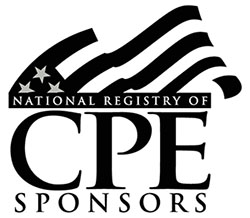
A One-Day Classroom Seminar (CPE Approved)
This course presents an overview of modern electrical substations, emphasizing their importance for reliable and effective operation of power systems, describing all major, auxiliary and control equipment, listing typical engineering issues associated with substation design and engineering and providing recommendations for addressing these issues. This course is based on a "down-to-earth" delivery, which is achieved through a very tight connection of material with real life power industry specifics, and emphasis on exercises and practice sessions.
- How power systems are arranged and what the transmission and distribution system structure is
- What substation mission and place in the overall T&D structure are
- What substation consists of and what every piece of equipment is for
- When to use each specific type of switching equipment
- What the main types of relay protection are
- What the mission and main components of auxiliary A.C. and D.C. systems are
- How to evaluate reliability of power supply
- What the main types of substation switching systems are
- How to select equipment for specific application
- How substation grounding and lightning protection are arranged
Getting Started:
- Introduction and logistics
- Course structure, goals and learning objectives
- Course delivery strategy
- Discussion of participants expectations
Â
Module 1. Main Concepts:
- Power System Arrangement
- Transmission and Distribution (T&D) System Structure
- Electrical Substations:
- Place in T&D structure
- Mission
- Main Components
- Quiz
Â
Module 2. Main Substation Components:
- Substation Components
Â
- Power Transformers:
- Main components
- Types of transformers
           - Problem based on voltage transformation equation
- Switching Equipment:
- Circuit breakers.
- Disconnecting switches.
- Circuit switchers
- Components and area of application for each type of switching equipment
- Substation Bus System:
                 - Open air rigid bus
  - Strain bus
  - Gas insulated (GIS) bus
  - Cable bus
  - Main components, advantages and disadvantages of each type
- Instrument Transformers:
- Current transformers. Types and components
- Voltage transformers. Types and components
- Overvoltage Protection
- Equipment Installation Options
- Class exercise on identification of substation components
- Quiz
Â
Module 3. Substation Auxiliary and Control Systems:
Â
- Relay Protection:
- Philosophy overview
- Relay equipment
- Main protection schemes
- Communication channels
- Calculation of wave trap components
- Metering Systems:
- Metering equipment
- Real value representation
- Problem based on metering transformers transformation factors calculation
- Â Auxiliary AC/DC Power Systems:
- AC systems: mission, main components, typical AC loads
- DC systems: mission, main components, typical DC loads
- Station Alarm and Remote Control Systems:
- Station alarm conditions
- Types of alarms
- Main components
- Remote Control and Operation Systems
- Quiz
Â
Module 4. Substation Engineering Aspects
- Â Reliability Analysis:
- Probability of equipment failures
- Series and parallel connection of system elements
- Problems based on downtime calculation for 230/13 kV System
- Typical Substation Switching Systems:
- Single bus
- Transfer bus
- Ring bus
- Breaker-and-a-half
- Double bus - double breaker
- Advantages and disadvantages of each system
- Insulation Coordination:
- Definition of insulation, area of application, requirements
- Basic insulation level (BIL)
- Basics of insulation coordination
- Substation Safety and Fire Protection:
- Safety provisions
- Substation safety issues
- Importance of safety
- Mission and means of fire protection
- Substation Design Issues:
- Steps in substation design and engineering
- Major equipment ratings
- Example of 138 kV circuit breaker rating selection
- Substation Insulation Performance Improvement:
- Basic information about substation insulators
- Possible problems and solutions
- Aspects of Substation Physical Security
- Quiz
Â
Â
Module 5. Substation Grounding and Lightning Protection
- Substation Grounding:
 - Mission and Main Components
               - Definition of Step and Touch Potential
               - Grounding System Design
- Substation Lightning Protection:
               - Mission and Main Components
               - Main Calculation Methods
- Quiz
Â
Course Recap and Closing
Mr. Shvartsberg is an engineering and project management professional with more than 35 years of practical experience in managing and supervising of highly complicated technical projects for utility companies in the United States and Latvia. He has extensive teaching experience in the European and US colleges and universities. Mr. Shvartsberg is the author of more than 20 publications on electrical engineering and project management subjects and has made numerous successful presentations at international conferences and symposiums. Mr. Shvartsberg has a doctorate and a masters degree in Electrical Engineering. He is a licensed Professional Engineer in the State of New Jersey, USA and a certified Project Management Professional designated by the Project Management Institute (PMI). He is a Senior Member of the Institute of Electrical and Electronics Engineers (IEEE) and a Leader of PMI Utility Industry Community of Practice.
- Additional attendees and government employees receive a 10% discount.
-
Register 4 or more attendees and receive 20% Off.
Special pricing is available for groups of 5 or more.
If you want attendees to pay with separate credit cards or have other questions, please call (440) 853-1038 for assistance.
This live group seminar is eligible for 7.5 CPE credits. Be aware that state boards of accountancy have final authority on the acceptance of individual courses for CPE credit. As of January 1, 2002, sponsored learning activities are measured by program length, with one 50-minute period equal to one CPE credit. One-half CPE credit increments (equal to 25 minutes) are permitted after the first credit has been earned in a given learning activity. You may want to verify that the state board from which your participants will be receiving credit accept one-half credits.


The Global Association of Risk Professionals (GARP) is a not-for-profit membership association dedicated to preparing professionals and organizations for making better-informed risk decisions. GARP's membership represents more than 150,000 risk management practitioners and researchers at academic institutions, banks, corporations, government agencies, and investment management firms in 195 countries and territories. GARP administers the Financial Risk Manager (FRM) and Energy Risk Professional (ERP) Exams – certifications recognized by risk professionals worldwide. Visit www.garp.org/cpd.
This course is designed for any engineering, management and educational professionals looking to expand their knowledge and experience in modern electrical substations: Electrical engineers and designers; College and universitie faculty; Utility company project management personnel; Construction professionals.
This fundamental level group live seminar has no prerequisites. No advance preparation is required before the seminar.
PGS seminars are known for their clear explanations and in-depth content. Register for a PGS class today, and join the over 10,000 energy professionals who have already attended one of PGS's proven programs.
